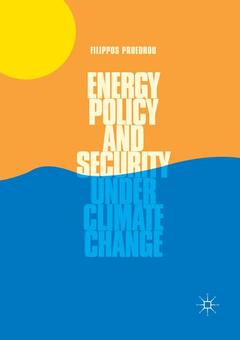Description
Energy Policy and Security under Climate Change, 1st ed. 2018
Author: Proedrou Filippos
Language: English
Subjects for Energy Policy and Security under Climate Change:
Approximative price 94.94 €
In Print (Delivery period: 15 days).
Add to cartPublication date: 01-2019
206 p. · 14.8x21 cm · Paperback
Approximative price 126.59 €
In Print (Delivery period: 15 days).
Add to cartPublication date: 05-2018
Support: Print on demand
Description
/li>Contents
/li>Biography
/li>Comment
/li>
This book analyses the trilemma between growth, energy security and climate change mitigation and, breaking from scholarly orthodoxy, challenges the imperative that growth must always come first. It sets forth the argument that a steady-state approach is a more appropriate conceptual mindset to enable energy transition, sets out a steady-state energy policy, and assesses the projected outcomes of its implementation in the realms of energy security, geopolitics and development. By exploring in depth the implications of such a shift, the book aims to demonstrate its positive effects on sustainability, supply security and affordability; to showcase the more favorable geopolitics of renewable energy; and to unpack new pathways towards development. By bringing together ecological economics and mainstream energy politics, fresh insight to energy and climate policy is provided, alongside their broader geopolitical and developmental ramifications.
Filippos Proedrou is Research Fellow in Social Policy (International Affairs) at the University of South Wales, UK. His areas of expertise are energy policy and security, geopolitics, EU studies, Russian foreign policy and ecological economics. He has published extensively in these fields.
Challenges scholarly orthodoxy by means of disentangling energy security from the imperative of growth
Analyses why a steady-state approach is a more appropriate conceptual mind-set to enable energy transition
Provides a coherent framework for a revised energy policy spanning the energy, finance, tax, trade and monetary realms
Sets out different transition pathways and runs through their implications
Provides detailed consideration of the main features of the geopolitics of renewables




